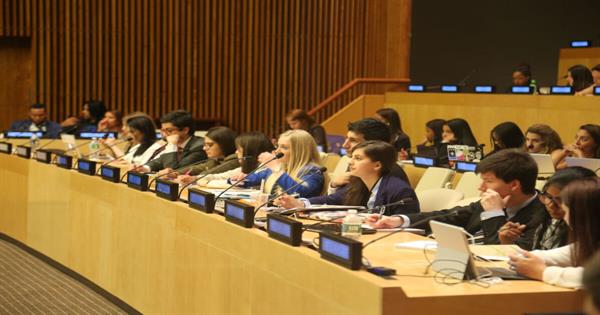
How Can You Lead a Regional MUN Debate?
Model United Nations, often known as Model UN or MUN, is an educational simulation that teaches students about diplomacy, international relations, and the United Nations. Students represent a nation, organization, or individual at a Regional MUN conference and must solve an issue with other delegates worldwide. MUN teaches research, public speaking, debating, and writing abilities, as well as critical thinking, collaboration, and leadership. Model UN is primarily utilized as an after-school activity, although some schools now offer it as a lesson. Model UN is intended to engage pupils and provide them with a greater awareness of contemporary global challenges.
Delegates must study before conferences to develop position papers and policy suggestions that they will debate with other delegates on their committee. Delegates will vote on written policies at the end of a conference to approve them with a majority vote. Delegates in each committee, as well as delegations, are occasionally acknowledged with prizes.
Model UN groups provide conferences for students from elementary school to college or university. Most conferences cater to only one of these three tiers. Delegates often attend conferences in groups sent by their school or university's model UN clubs, while some delegates attend conferences on their own.
Also Read: The Significance of Using a Certified Model United Nation
There are a few key points to keep in mind when leading a Regional MUN debate. Remember that your opponents are not your opponents, but they can still surprise you. People who are surprised by your arguments will likely remember you for it. Often, the "little country that could" is the one who leaves the biggest impression on the committee.
- Spectator delegates
This paper considers the MUN debate as an instance of popular geopolitics, using an assemblage theory framework to incorporate discourses of diplomacy, horizontal trans-local scale theory, and feminist geopolitics. In addition to these elements, assemblage theory enables us to engage with embodied effects and materiality’s, often ignored in mainstream geopolitics. As such, it is an important framework for thinking about international relations, nationalism, and the politics of globalization.
Delegates should also focus on capturing the attention of the audience. Failure to capture the audience's attention during a speech is one of the most common mistakes made during Regional MUN debates. Without capturing the audience's attention, their speech will not be heard, and the delegate will have missed an opportunity to express their point of view.
- Capitalize on your strengths
Capitalizing on your strengths can help you land the job if you're looking for a leadership position. Knowing your strengths will allow you to approach problems differently and help you do your job better. Whether you're looking for a new position in a corporate environment or a Regional MUN debate, knowing your strengths can help you land the job you want.
- Adapt to patterns
You'll need to adapt to participation patterns when leading a Regional MUN debate. First of all, try to have a diverse delegation. It's important to have an equal number of male and female delegates. Secondly, make sure to have experienced delegates mentor the less experienced ones. Third, ensure guidelines for writing position papers are available for all delegates to follow. You should also meet with head delegates to discuss these guidelines.
- Appeal to emotions
Appealing to emotions is a powerful technique during a Regional MUN debate. In most cases, there is a human aspect to the issue. A good delegate will mention this aspect, but a great one will exploit it and make the audience feel it. While an appeal to emotion can contain sound logic and facts, it can also be misleading. It influences the audience's emotions and convinces
Related Blogs
-
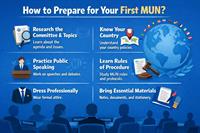
19-Jan-2026 How to Prepare for Your First MUN?
-
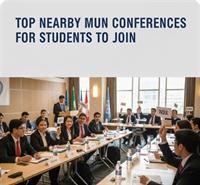
24-Dec-2025 Top Nearby MUN Conferences for Students to Join
-
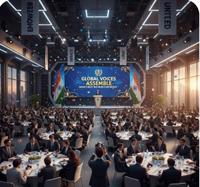
27-Nov-2025 Global Voices Assemble India Next Big MUN Conference
-
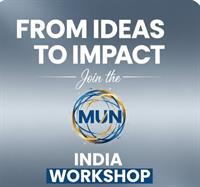
13-Nov-2025 From Ideas to Impact Join the MUN India Workshop
-
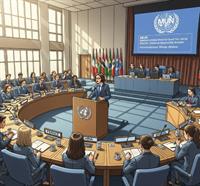
14-Aug-2025 What Is A Conference In MUN?
-
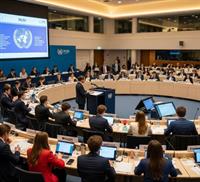
07-Aug-2025 What Does the MUN Do?
-
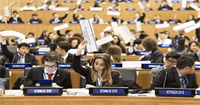
03-Jul-2025 Ways to Research for a Model UN Position Paper
-
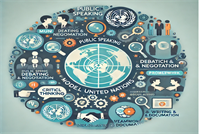
28-Mar-2025 What skills do you gain from Model United Nations?
